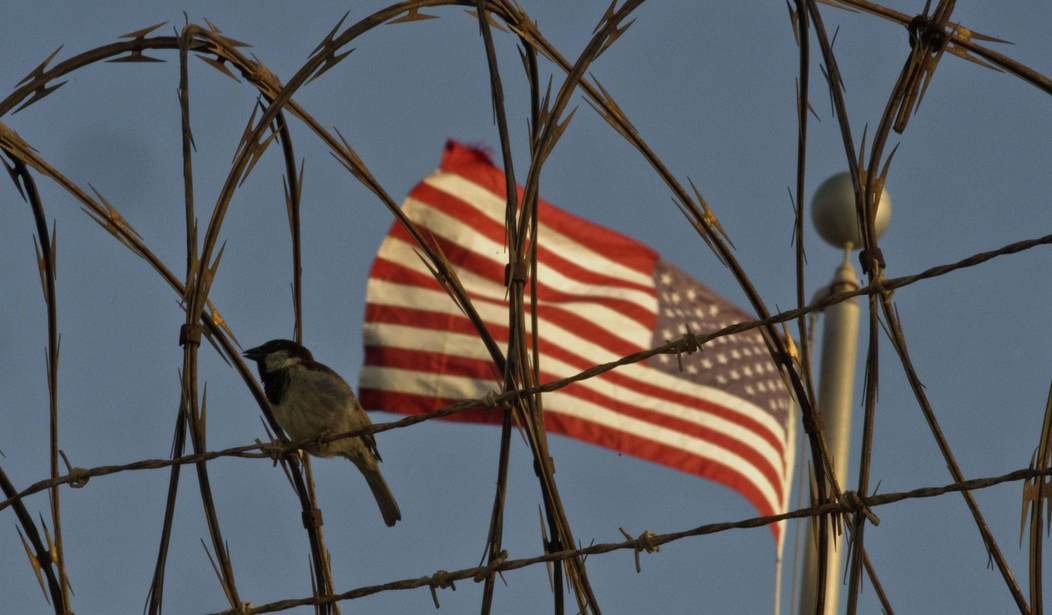And then there were 31. Ghassan Abdullah al-Sharbi, a 48-year-old Saudi engineer, was held in Guantánamo Bay for more than 20 years. He was suspected of having made bombs for Al Qaeda but was never brought to trial. Defense Secretary Lloyd Austin authorized the transfer of al-Sharbi in September but it was delayed for reasons U.S. officials are not talking about. This leaves 31 men in the detainee population at Guantánamo Bay. Of that number, 17 are approved for resettlement or repatriation after security agreements are reached with countries willing to take them.
Biden’s goal is to empty Guantanamo Bay. The release of al-Sharbi brings the number to four suspected terrorists who have been released recently by the Biden administration. In February, two Pakistani brothers were repatriated to Pakistan. Also in February, a high-value prisoner, the only American resident locked up in Guantanamo Bay, was released to Belize. We only hear of these releases from Guantanamo Bay after the deals have been made and the prisoners are released. The most transparent administration ever, eh?
The Department of Defense released a statement thanking Saudi Arabia for its cooperation in the release of al-Sharbi.
The United States appreciates the willingness of the Kingdom of Saudi of Arabia, and other partners to support ongoing U.S. efforts toward a deliberate and thorough process focused on responsibly reducing the detainee population and ultimately closing the Guantanamo Bay facility.
The PRB process was established by the President’s March 7, 2011, Executive Order 13567. It is consistent with section 1023 of the National Defense Authorization Act for fiscal year 2012 and affirmed in Executive Order 13823 (January 30, 2018).
The PRB panel consists of one senior career official each from the ‘Department of Defense, Homeland Security, Justice, and State, along with the Joint Staff and the Office of the Director of National Intelligence.
He’s a bomb-maker who allegedly targeted American soldiers in Afghanistan.
Military prosecutors tried to put Mr. al-Sharbi on trial in the early 2000s as part of a team that was captured in Pakistan while allegedly making explosive devices to target U.S. soldiers in Afghanistan.
He was charged with “providing material support for terrorism.” But higher courts ruled that the charge of providing material support was not a recognized international war crime at the time of his actions, so the case was dropped. He spent years under indefinite detention.
A transcript from a status hearing in 2004 or 2005 portrayed him as a belligerent, unrepentant prisoner. “I did not come here to defend myself, but defend the Islamic nation,” he told the board in a brief monologue that railed against capitalism, homosexuality, U.S. support for Israel and the war in Iraq.
In the years that followed, he refused the efforts of civilian lawyers to seek his release through a habeas corpus petition in federal court, telling a civilian judge in 2009 that “the American U.S. legal system is just the lavatory that flushes the dirty output of Uncle Sam — you’re just trying to wipe out whatever he does, negative things.”
What could possibly go wrong?
After all the years of not cooperating with the review boards, suddenly in 2021, al-Sharbi decided he was ready to work toward being released. His court-appointed attorney from Washington, D.C. said al-Sharbi “was comfortable around those of different backgrounds and faith.” He recommended al-Sharbi be released to an Arabic or English-speaking country. The lawyer said that al-Sharbi wants to work but realizes the engineering world has changed a lot during the time he was detained. The lawyer suggested al-Sharbi could be a teacher or tutor.
Mr. al-Sharbi was expected to ultimately go to Saudi Arabia’s rehabilitation center for Muslim extremists, which last received a Guantánamo detainee toward the end of the Obama administration. Two Saudi citizens were repatriated by the Trump and Biden administrations. But one was sent to complete a prison sentence, and the other was transferred to a mental health care facility as a torture survivor.
In past releases of terrorists from Guantanamo Bay, some have returned to the battlefield. We’ll see if this suspected bomb-maker truly starts a new life as a teacher or tutor, or if he goes back to what he knows.









Join the conversation as a VIP Member